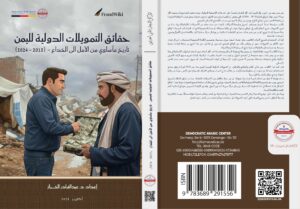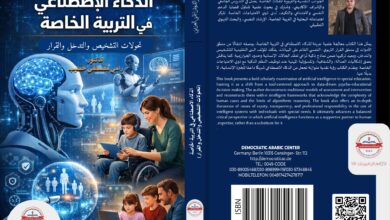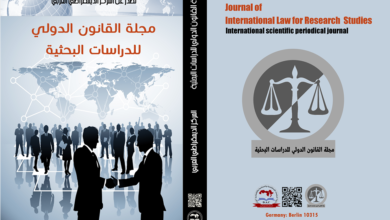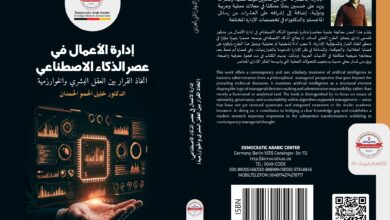حقائق التمويلات الدولية لليمن – تاريخ مأساوي من الأمل الى الخداع 2015 – 2024
The Facts About International Funding for Yemen - A Tragic History: From Hope to Deception ( 2015 – 2024)
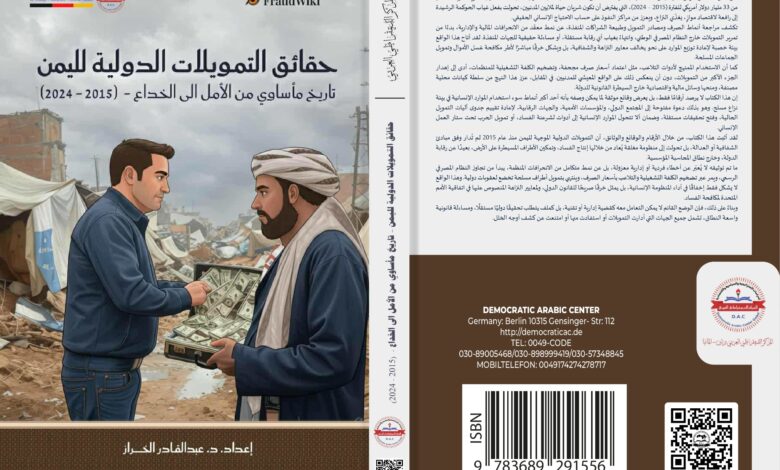
تأليف : د. عبدالقادر محمد الخراز – منصة فرودويكي FraudWiki
نسخة “pdf”-
حقائق التمويلات الدولية لليمن – تاريخ مأساوي من الأمل الى الخداع 2015 – 2024
الطبعة الأولى “2025″ –من كتاب : حقائق التمويلات الدولية لليمن – تاريخ مأساوي من الأمل الى الخداع 2015 – 2024
جميع حقوق الطبع محفوظة #المركز_الديمقراطي_العربي ولا يسمح بإعادة إصدار هذا الكتاب أو اي جزء منه أو تخزينه في نطاق إستعادة المعلومات أو نقله بأي شكل من الأشكال، دون إذن مسبق خطي من الناشر .
تقديم : –
على مدى عقد من الزمن، ظل اليمن أحد أكثر البلدان اعتمادًا على التدخلات الإنسانية الدولية، حيث تدفقت إليه تمويلات بلغت أكثر من 33 مليار دولار أمريكي للفترة (2015 – 2024)، التي يفترض أن تكون شريان حياة لملايين المدنيين، تحولت بفعل غياب الحوكمة الرشيدة إلى رافعة لاقتصاد موازٍ، يغذّي النزاع، ويعزز من مراكز النفوذ على حساب الاحتياج الإنساني الحقيقي.
تكشف مراجعة أنماط الصرف ومصادر التمويل وطبيعة الشراكات المنفذة، عن نمط معقّد من الانحرافات المالية والإدارية، بدءًا من تمرير التمويلات خارج النظام المصرفي الوطني، وانتهاءً بغياب أي رقابة مستقلة، أو مساءلة حقيقية للجهات المنفذة. لقد أتاح هذا الواقع بيئة خصبة لإعادة توزيع الموارد على نحو يخالف معايير النزاهة والشفافية، بل ويشكل خرقًا مباشرًا لأطر مكافحة غسل الأموال وتمويل الجماعات المسلحة.
كما أن الاستخدام الممنهج لأدوات التلاعب، مثل اعتماد أسعار صرف مجحفة، وتضخيم الكلفة التشغيلية للمنظمات، أدى إلى إهدار الجزء الأكبر من التمويلات، دون أن ينعكس ذلك على الواقع المعيشي للمدنيين. في المقابل، عزز هذا النهج من سلطة كيانات محلية مصنفة، ومنحها وسائل مالية واقتصادية خارج السيطرة القانونية للدولة.
إن هذا الكتاب لا يرصد أرقامًا فقط، بل يعرض وقائع موثقة لما يمكن وصفه بأنه أحد أكبر أنماط سوء استخدام الموارد الإنسانية في بيئة نزاع مسلح. وهو بذلك دعوة مفتوحة إلى المجتمع الدولي، والمؤسسات الأممية، والجهات الرقابية، لإعادة تقييم جدوى آليات التمويل الحالية، وفتح تحقيقات مستقلة، وضمان ألا تتحول الموارد الإنسانية إلى أدوات لشرعنة الفساد، أو تمويل الحرب تحت ستار العمل الإنساني.
لقد أثبت هذا الكتاب، من خلال الأرقام والوقائع والوثائق، أن التمويلات الدولية الموجهة لليمن منذ عام 2015 لم تُدار وفق مبادئ الشفافية أو العدالة، بل تحولت إلى منظومة مغلقة يُعاد من خلالها إنتاج الفساد، وتمكين الأطراف المسيطرة على الأرض، بعيدًا عن رقابة الدولة، وخارج نطاق المحاسبة المؤسسية.
ما تم توثيقه لا يُعبّر عن أخطاء فردية أو إدارية معزولة، بل عن نمط متكامل من الانحرافات المنظمة، يبدأ من تجاوز النظام المصرفي الرسمي، ويمر عبر تضخيم الكلفة التشغيلية والتلاعب بأسعار الصرف، وينتهي بتمويل أطراف مسلحة تخضع لعقوبات دولية. وهذا الواقع لا يشكل فقط إخفاقًا في أداء المنظومة الإنسانية، بل يمثل خرقًا صريحًا للقانون الدولي، ولمعايير النزاهة المنصوص عليها في اتفاقية الأمم المتحدة لمكافحة الفساد.
وبناءً على ذلك، فإن الوضع القائم لا يمكن التعامل معه كقضية إدارية أو تقنية، بل كملف يتطلب تحقيقًا دوليًا مستقلًا، ومساءلة قانونية واسعة النطاق، تشمل جميع الجهات التي أدارت التمويلات أو استفادت منها أو امتنعت عن كشف أوجه الخلل.
ولضمان عدم تكرار هذا النمط من الانتهاكات، فإننا نوصي بما يلي:
- فتح تحقيق دولي مستقل وشفاف، بإشراف هيئة محايدة من الأمم المتحدة أو منظمات التدقيق الدولية، لمراجعة آليات التمويل والتعاقد والإنفاق منذ 2015 حتى اليوم.
- تعليق التمويلات غير المشروطة لحين التأكد من خضوعها للحوكمة المؤسسية اليمنية، وتقييد تمرير الأموال إلا عبر البنك المركزي الرسمي، وفق معايير موحدة.
- تدقيق شامل في الشراكات المحلية والدولية التي أبرمتها الوكالات الأممية والمنظمات الدولية، والتأكد من خلوها من تضارب المصالح أو التسييس أو تمكين جهات حربية.
- تفعيل أدوات الرقابة والمسؤولية البرلمانية في الدول المانحة، ونشر التقارير المالية التفصيلية للتمويلات عبر منصات شفافة متاحة للعامة.
إن معالجة هذا الخلل لا تتطلب فقط إجراءات تقنية، بل إرادة سياسية حقيقية لإعادة الاعتبار للقيم الأساسية التي تأسس عليها العمل الإنساني: الحياد، الشفافية، والعدالة. أما التراخي، فهو بمثابة تواطؤ صامت، يُطيل أمد الحرب، ويُعيد إنتاج المعاناة باسم المساعدات
تعريف عن المؤلف : د. عبدالقادر محمد الخراز
أستاذ التقييم البيئي المشارك بجامعة الحديدة وناشط في تتبع التمويلات الدولية لليمن في فترة الحرب، قام بتأليف العديد من الأبحاث والتقارير والكتب المتعلقة سواء بالبيئة والتغير المناخي او ما يتعلق بتقييم وضع التمويلات الدولية واوجه الفساد والاختلالات فيها.
تعريف منصة فرودويكي FraudWiki : هي مختصة بكشف الفساد والاحتيال والتضليل
Authored by: Dr. Abdulqader Mohammed Al-Kharraz – FraudWiki
Abstract
For a decade, Yemen has remained one of the most dependent countries on international humanitarian interventions, with funding exceeding 33 billion US dollars for the period (2015-2024). This funding, which was supposed to be a lifeline for millions of civilians, has, due to the absence of good governance, transformed into a lever for a parallel economy that fuels conflict and strengthens centers of influence at the expense of genuine humanitarian needs.
A review of expenditure patterns, funding sources, and the nature of implemented partnerships reveals a complex pattern of financial and administrative deviations, starting from channeling funds outside the national banking system to the absence of any independent oversight or genuine accountability for implementing entities. This reality has created a fertile environment for the redistribution of resources in ways that violate standards of integrity and transparency, and it constitutes a direct breach of frameworks for combating money laundering and financing armed groups.
Moreover, the systematic use of manipulation tools, such as relying on unjust exchange rates and inflating operational costs for organizations, has led to the waste of the majority of funding, without any positive impact on the living conditions of civilians. Conversely, this approach has enhanced the authority of classified local entities and provided them with financial and economic means beyond the legal control of the state.
This book does not merely present figures; it documents realities that can be described as one of the largest patterns of misusing humanitarian resources in a conflict environment. It is thus an open call to the international community, UN institutions, and oversight bodies to reevaluate the effectiveness of current funding mechanisms, initiate independent investigations, and ensure that humanitarian resources do not become tools for legitimizing corruption or financing war under the guise of humanitarian work.
The book has demonstrated, through figures, facts, and documents, that international funding directed to Yemen since 2015 has not been managed according to the principles of transparency or justice; rather, it has transformed into a closed system through which corruption is reproduced, empowering the parties controlling the ground, away from state oversight and outside the scope of institutional accountability.
What has been documented does not reflect isolated individual or administrative errors but rather a comprehensive pattern of organized deviations, beginning with circumventing the official banking system, passing through inflating operational costs and manipulating exchange rates, and culminating in financing armed groups subject to international sanctions. This reality not only constitutes a failure in the performance of the humanitarian system but also represents a clear violation of international law and the integrity standards stipulated in the United Nations Convention against Corruption.
Accordingly, the current situation cannot be treated as an administrative or technical issue but as a case requiring an independent international investigation and broad legal accountability involving all entities that managed funding, benefited from it, or failed to disclose malpractices.
To ensure that this pattern of violations does not recur, we recommend the following:
- Initiate an independent and transparent international investigation, supervised by a neutral body from the United Nations or international auditing organizations, to review funding, contracting, and spending mechanisms from 2015 to the present.
- Suspend unconditional funding until it can be ensured that they comply with Yemeni institutional governance, and restrict the flow of funds to the official central bank, according to unified standards.
- Conduct a comprehensive audit of the local and international partnerships established by UN agencies and international organizations, ensuring they are free from conflicts of interest, politicization, or enabling war parties.
- Activate oversight tools and parliamentary accountability in donor countries, and publish detailed financial reports on funding through transparent platforms accessible to the public.
Addressing this imbalance requires not only technical measures but also a genuine political will to restore the core values upon which humanitarian work is founded: neutrality, transparency, and justice. Complacency is tantamount to silent complicity, prolonging the war and perpetuating suffering in the name of aid.
الناشر: المركز الديمقراطي العربي للدراسات الإستراتيجية والسياسية والاقتصادية
Democratic Arabic Center- Berlin – Germany

